“Our Blue Planet” brings awareness to climate crisis through art
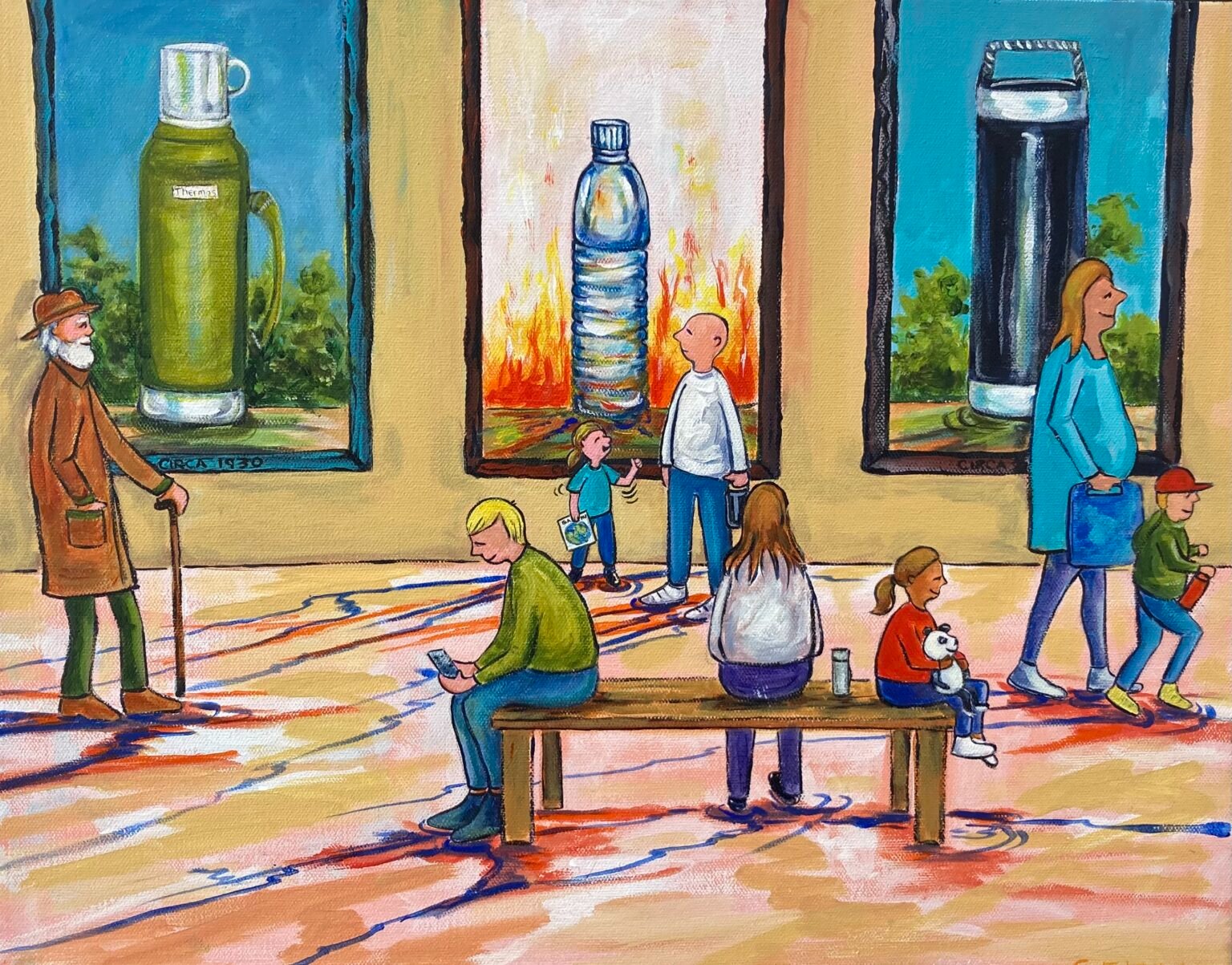
“Art is more than just pretty pictures, it can and should be used to create change,” said Katherine Brown a contributing artist to Humber Valley Art Club’s, Our Blue Planet exhibition. The exhibition raised awareness for the plastic pollution crisis and climate change, while featuring local artwork. After receiving 64 submissions from club and community members, the club was able to raise over $1,000 for the World Wildlife Fund. The exhibition Our Blue Planet was hosted at the Nielsen Park Creative Centre from Nov. 8, to 28.
The executive committee chose the theme of Our Blue Planet after it was proposed by Carol Essex, a retired teacher and volunteer executive committee member. “I’ve been concerned about the environment for a long time. We need to bring the concern for the environment into all of the spaces of all of the things that we do,” said Essex. The committee felt the topic was relevant and provided the artists with an interesting subject and opportunity to showcase their art said Essex. She also added that the show is a departure from the club’s usual exhibitions and their first event focusing on social change.
COVID-19 did not stop the exhibit from being shown in person, however the reception for the event was online. Five award winners were chosen by juror Margaret Roseman, an internationally known painter, and prizes of up to $300 were awarded. The COVID-19 pandemic created challenges with advertising to entrants and visitors of the event. Word of mouth was not spread, as the Nielsen Park Creative Center was closed said Essex. Artists and visitors were not able to visit the centre due to gathering restrictions and the exhibition was unable to be advertised in the usual manner. This caused the exhibition to be smaller than usual, but a well rounded showcase was still formed said Essex.
A range of artists contributed to the event, some beginners and others professionals, all from the Etobicoke area. There was a variety of works including, acrylic, watercolour, collage, print, embroidery and multimedia projects. Many of the pieces featured landscapes or elements of nature, while others concentrated on animals, and some on plastic pollution.
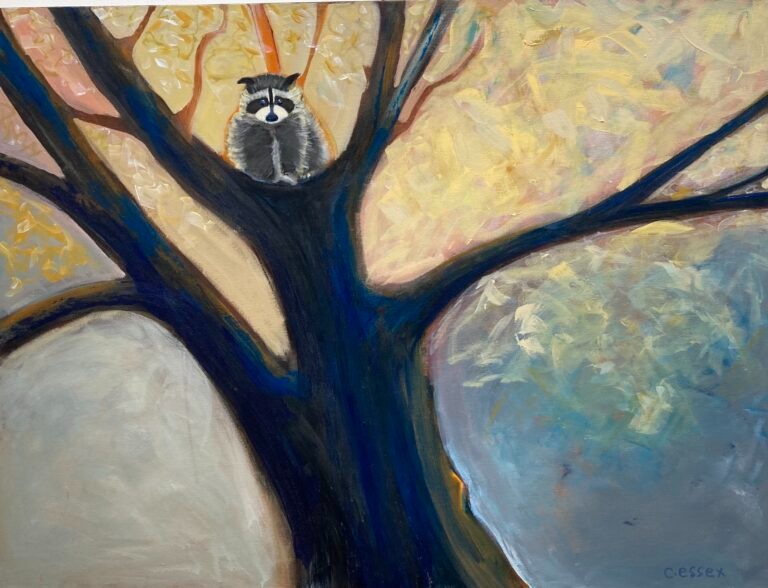
Second-place prize winner Natalia Outkina was awarded for her painting Waterfalls. “Waterfalls symbolize the source of clean water that is provided to the people, the environment must be clean for the water to stay clean,” she said in a phone interview. She was thankful for the opportunity to participate in the exhibition and happily surprised to come in second place. “I hope that through art people will start thinking that what we have can’t last forever if we don’t help and support it.”
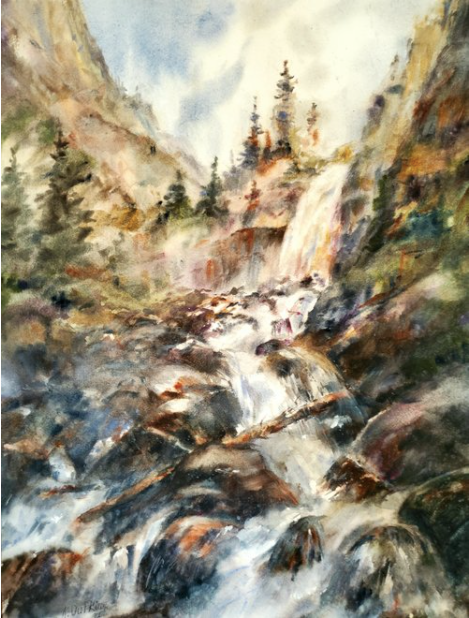
Katherine Brown, established artist and author took first prize in the exhibition for her painting Arctic Alarm. The work she contributed can be found in her book, Our Vanishing Planet which introduces children to endangered species and environmental destruction through paintings of animals and environments. “You’re never too small to make a difference, the environment affects everyone, so everyone needs to help make a change,” she said in a phone interview. She was grateful for the possibility to bring awareness to environmental issues, which she is passionate about. “Art is more than just pretty pictures, it can and should be used to create change.”
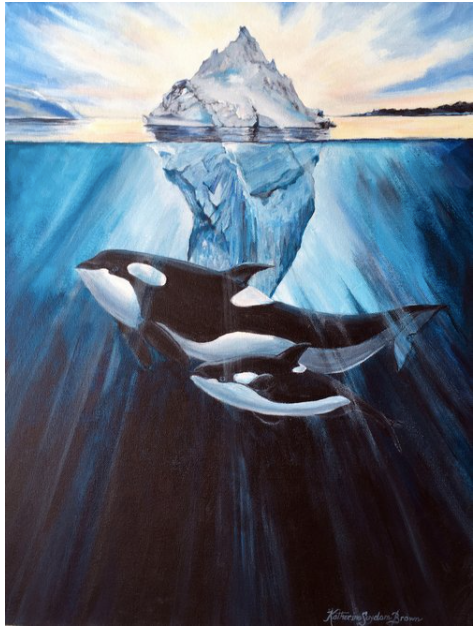
In 2020, the World Wildlife Fund created the national Living Planet Index to measure Canada’s ecological performance. This report showed “wildlife populations in Canada are in serious and significant decline… pesticides and pollutants remain, including plastic waste and microplastics which disturb wildlife and transform environments.” WWF concluded “Wildlife loss is not someone else’s problem. It’s a Canadian problem.”
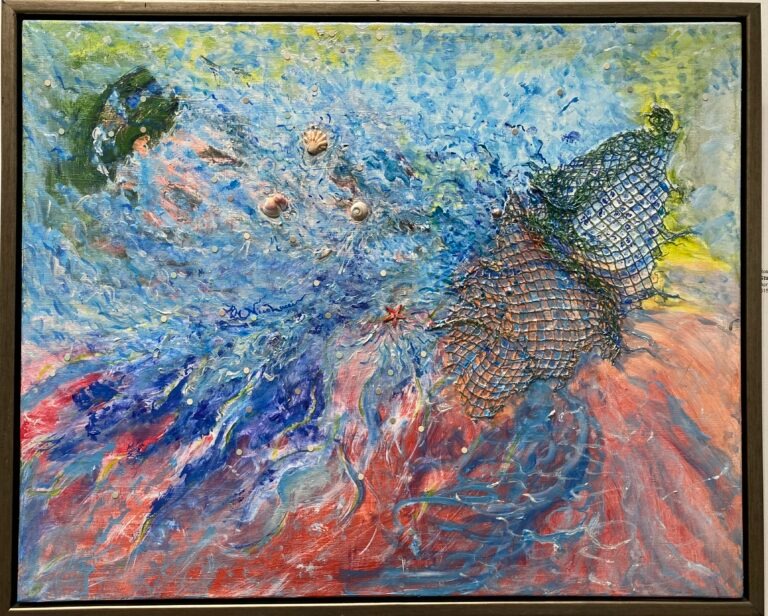
Post a comment